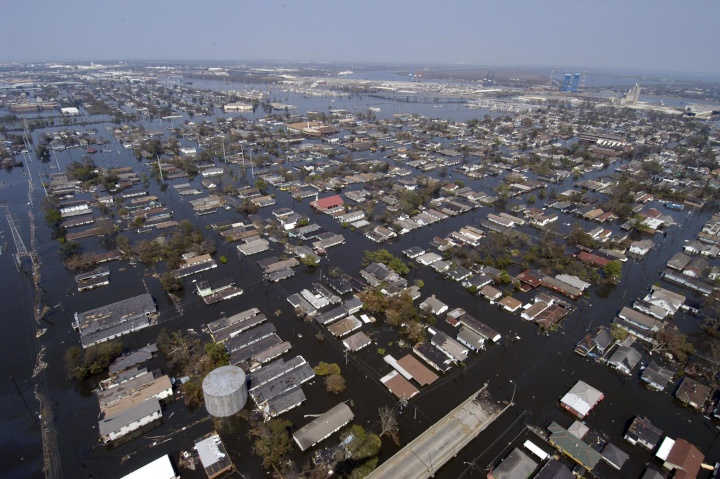Please help us improve PreventionWeb by taking this brief survey. Your input will allow us to better serve the needs of the DRR community.
New Zealand: Empowering communities to act in a disaster can save lives
2017 has seen parts of the United States in the grip of savage wildfires and hurricanes - so many that US Federal Emergency Management Agency (FEMA) employees have been warned that they might have their pay docked for working too much.

The aftermath of Hurricane Katrina. Credit: Wikimedia Commons
The year of record-breaking natural disasters means that in the US, as in New Zealand, there’s a conversation happening about how best to run the emergency management sector and what philosophies best engage and protect communities in the event of a crisis. How much of the responsibility for a community’s safety in a natural disaster is the Government’s, and how much can be left up to the community themselves? And how do we ensure none of our most vulnerable residents are left behind?
Here in New Zealand, research and interviews I’ve conducted throughout 2017 show a shift in the philosophy driving Civil Defence in New Zealand. Where top-down, command and control models used to be the norm, some councils around New Zealand are now encouraging communities to build resilience ahead of a disaster, and to identify their strengths, weaknesses, and potential local leaders, rather than waiting for the cavalry to ride in and take care of them when floods, earthquakes, fires or tsunamis hit.
[...]
Explore further
Please note: Content is displayed as last posted by a PreventionWeb community member or editor. The views expressed therein are not necessarily those of UNDRR, PreventionWeb, or its sponsors. See our terms of use
Is this page useful?
Yes No Report an issue on this pageThank you. If you have 2 minutes, we would benefit from additional feedback (link opens in a new window).